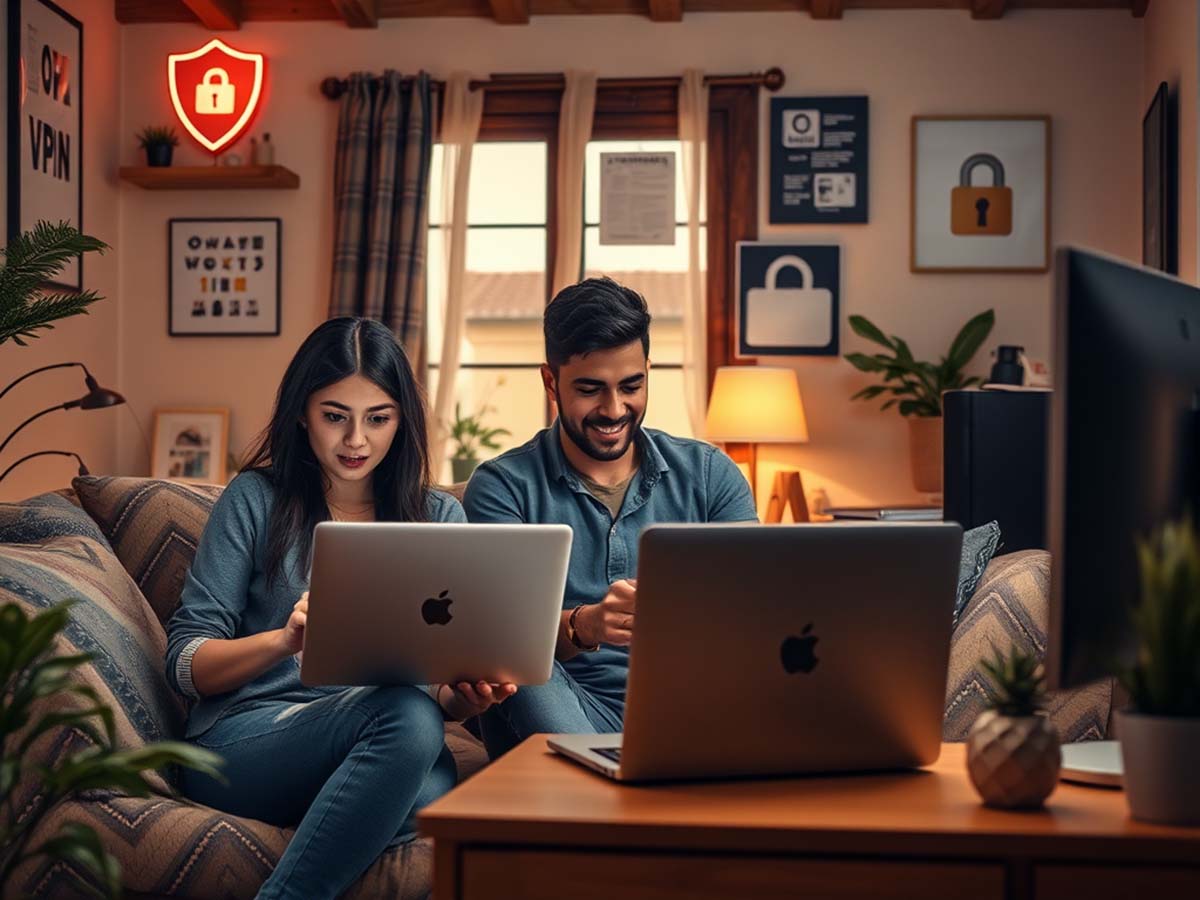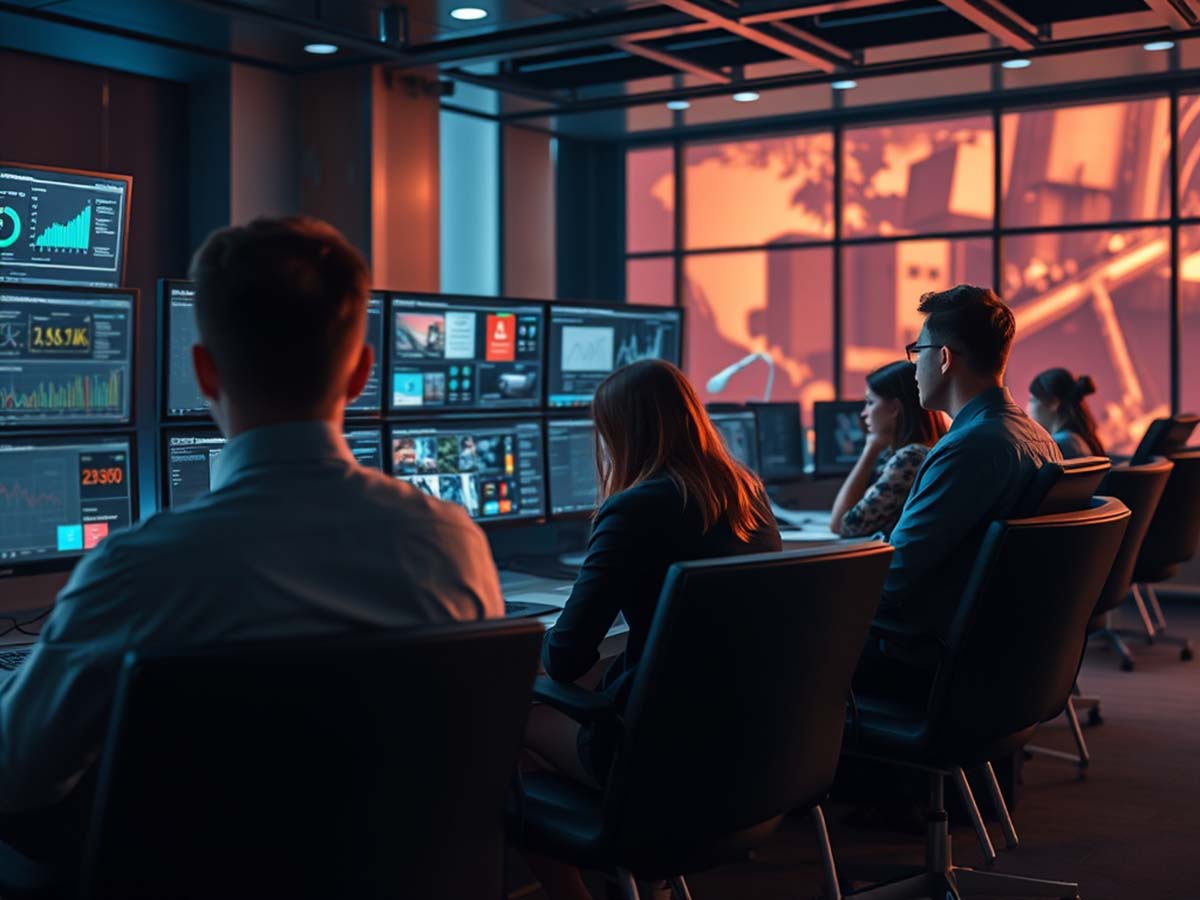
A VPN hides your real IP and sends your data through a safe server. It guards your privacy on public networks and keeps your personal information away from prying eyes.
Using a VPN can help you work securely from any location, and it lets you browse without fear. This post covers what a VPN does, why it matters, and tips on choosing a service.
What Is a VPN?
A VPN stands for Virtual Private Network. It sets up a private line between your device and a secure server. Your data is mixed up so that outsiders cannot read it. For example, when you use public Wi-Fi at a café, a VPN keeps your online actions hidden. Many people use VPNs for work and personal use to protect their information.
A VPN hides your real address. Instead, the connection shows the server’s address. This helps stop websites from tracking your location and prevents unwanted visitors from spying on your browsing. Services often use encryption to scramble your data, making it hard for hackers to understand what you are doing.
Why Use a VPN?
People choose VPNs for many reasons. A safe connection on public networks is one. If you send emails or use banking apps on open Wi-Fi, a VPN stops others from seeing your private details. It is also useful when working from home. Many small companies depend on VPNs to keep business data safe.
A VPN gives you more freedom. With a safe connection, you can connect to servers in other places, which may let you access sites that are restricted in your area. It also helps when traveling. When you are away, a VPN allows you to get access to the tools you use at home.
Using a VPN has some benefits:
- Your real address is hidden, making tracking difficult.
- Your data is scrambled, so even if someone intercepts it, they see nothing useful.
- You can work safely on public Wi-Fi networks.
- You can switch server locations to access new content.
Consider a freelance writer who works in coffee shops. Before using a VPN, the writer worried about open Wi-Fi networks. After getting a VPN, the writer felt safe working and sending files. This is one way a VPN fits into everyday life.
How a VPN Works
A VPN connects your device to a server using a secure link. Data travels along this link in an encrypted form. Encryption scrambles your data, so even if a hacker intercepts it, the information is unreadable.
The process is simple. You start your VPN application and it connects you to a server. Your computer then sends all internet traffic through that server, hiding your real location. Websites see the server’s address instead of yours.
Using a VPN is like sending a letter in a sealed envelope instead of a postcard. Your message stays private until it reaches its destination, keeping your personal details hidden.
VPN and Daily Online Tasks
Many people include VPNs in their routine. Whether you check email, shop online, or work remotely, a VPN adds a level of safety. It is also helpful when using social media, keeping your profile and posts private from unauthorized access.
A friendly tip: If you often use open networks, connect to a VPN. This small extra step can protect you from potential risks and create a more secure online experience.
Choosing a VPN Service
Not all VPNs work the same way. Look for a service with good reviews and a strong privacy policy. A service that does not keep logs of your activity is preferred. The software should be easy to use and not slow down your internet.
Ask these questions when choosing a VPN:
- Does it protect your data well?
- Does it offer many server options?
- Is it simple to operate?
- Do reliable sources recommend it?
For instance, a small business might choose a service that works well on all devices. A social media user might prefer one that is fast and reliable. Reading user reviews and trying free trials can help in deciding which service fits your needs.
VPN for Remote Work
More people work from home these days, and a secure connection is needed to access company files. A VPN protects sensitive work data and allows for safe sharing of documents and emails. Many companies require employees to use VPNs when working remotely.
Think of a team meeting over video chat. A VPN keeps the conversation private by preventing unauthorized access. This added safety helps team members focus on their work without worry.
VPN and Personal Privacy
Privacy online is a common concern. A VPN plays a role in keeping your data safe. By using a VPN, you regain some control over your privacy. Your browsing, messages, and financial details remain hidden from many eyes.
Imagine using a public computer. Without a VPN, others might see your personal searches. With a VPN, your details stay masked, giving you peace of mind.
Real-Life Examples
A small business owner using public Wi-Fi while traveling once faced several security alerts. After starting a VPN service, security alerts reduced and transactions went smoothly. This extra safety boosted confidence in using online tools during trips.
A student working on assignments in a coffee shop also found that using a VPN allowed safe research and email communication. These simple changes make everyday tasks more secure.
Practical Tips for Using a VPN
For best results, follow these guidelines when using a VPN:
- Always connect to the VPN before browsing on a public network.
- Check the server location to suit your needs.
- Use strong, unique passwords for your VPN account.
- Keep the VPN software updated for the latest security features.
Following these practices can help ensure the VPN works as expected. Regularly checking your connection can also provide confidence in its reliability. Even a small precaution can have a significant impact on your online safety.
Key Points
Using a VPN makes a difference in protecting your online privacy. It hides your data and shields your activity on public networks. This small step adds a layer of security that makes daily tasks safer.
Your online safety matters. Taking the extra step to secure your connection helps protect personal information and business data alike. A VPN is a useful tool that many find valuable in keeping their online experience safe and stress-free.
Caring for your online connections creates a more secure environment for work, communication, and browsing. Consider using a VPN to keep your digital life safe.


No Comments